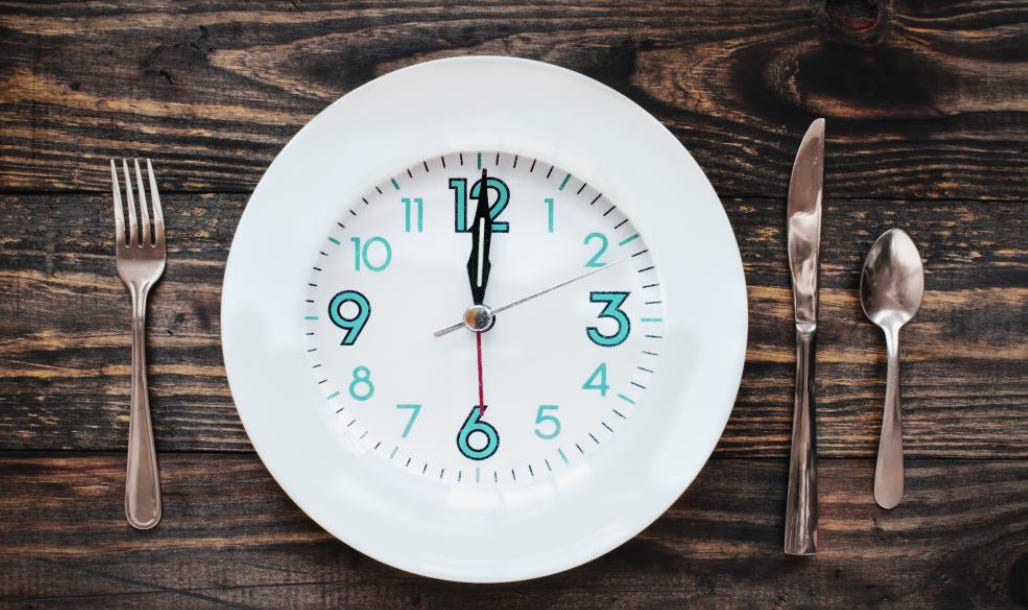Intermittent Fasting Could be the Reason Why You Can’t Lose Weight
and the importance of breakfast
There are countless song lyrics that are unproductive when examined under a health and wellness lens. “We’ll all stay skinny ‘cause we just won't eat” is one that stands out to me. Yes, the Nickelback song.
With the start of a new year, its seems like everyone comes out of the woodwork with their fast fixes to lose weight, get healthy or look more toned.
One tip that if implemented the wrong way can be quite detrimental to your health is intermittent fasting.
What is intermittent fasting?
Intermittent fasting is when you do not eat for prolonged period of time (usually around 16 hours) to a point where the body has burned through all calories it has consumed and begins burning fat. This approach to eating has been around for years, practiced for religious purposes in Islam, Christianity and Judaism to name a few. For the sake of this blog I won’t be getting into the details of it in that perspective.
Why intermittent fast?
According to a study done by Dr Mark Mattson at Johns Hopkins University, intermittent fasting can increase longevity and decrease likelihood of cancer and obesity.
Intermittent fasting has also been shown to decrease weight or the participants while not impacting their mood. It is worth noting that everyone in this study was male.
Even though this approach has many proven benefits that are widely recognized and discussed in science literature and mainstream media, it it alarming how often it is not coupled with the importance of breakfast.
Why you should not break up with breakfast
If you intermittent fast and it works for you, that’s great. It is also important to time it properly. To have your last meal early in the evening and not eat again until you wakeup is one thing (a thing with great health benefits even), but if you have your last meal at let’s say… 8:30 pm, and don’t eat again until 1 pm the next day, you are not setting yourself up for success and heres why:
As a female, eating breakfasts leads to positive changes in
Appetite
Satiety
Neural signals that control food intake regulation.
Snacking reduction (for high protein breakfast specifically)
In a 16 year study with 26,902 men, it was found that skipping breakfast can increase risk of coronary heart disease by 27% and eating late at night can increase risk by 55%.
Breakfast is related to a greater intake of nutrients in the total of the day, better coverage of the nutritional recommendations and better quality of the whole diet. It can contribute to improvements in body weight control and attention and cognitive function in all age groups.
Eating breakfast has actually been positively correlated with weight loss. If you have been skipping breakfast for years and haven’t been able to lose weight, this might be why.
Intermittent fasting has it’s proven benefits. It works for weight loss, can prevent brain related disorders, enhance mental clarity, among other things. If you take anything away from this post let it be this: educate yourself around what can come with participating in health related changes.
Thank you for subscribing! Any feedback, requests or questions are warmly welcomed.
Well Wishes,
Jillian
Make it Urdae!
Jillian is a Certified Holistic Health Coach from the Institute for Integrative Nutrition and is a certified Yoga Instructor by the Yoga Alliance.
If you have health and wellness goals and could use guidance, here is the link to a free intro session for her 1:1 coaching, where she supports healthy lifestyle changes.







